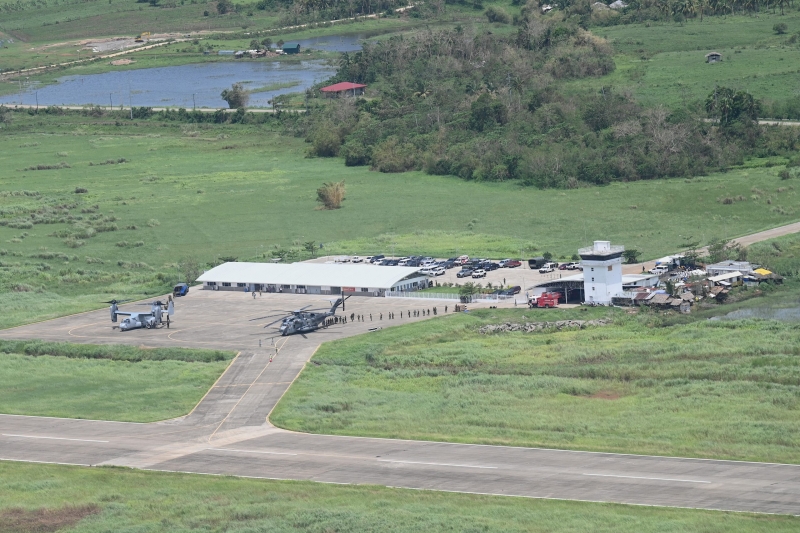This photo shows an aerial view of Lal-lo Airport in Cagayan province, northern Philippines on August 3, 2023. The Lal-lo Airport is one of the additional sites for the Enhanced Defense Cooperation Agreement (Edca) between the Philippines and the United States. (Photo by JAM STA ROSA / POOL / AFP)
MANILA, Philippines — Enhanced Defense Cooperation Agreement (Edca) sites in the Philippines are “unlikely” to be affected by the United States’ freeze on its international aid programs, according to the Department of Foreign Affairs (DFA).
The US State Department froze funding for nearly all of its foreign aid on Friday (Saturday, Manila time), exempting only emergency food programs and military aid to Israel and Egypt.
When asked about the effects of the freeze on the Philippines at a Saturday news forum in Quezon City, DFA Undersecretary Eduardo De Vega said the country was still in talks with American counterparts but clarified that Edca would not be affected.
“Hindi tatanggalin ‘yun. Tuloy ‘yun… Malabo. (Edca won’t be removed. It will continue… It’s unlikely.) No. They will not suddenly abandon the Edca sites… They know the importance of Edca for the interests of both the US and the Philippines,” De Vega stressed at the forum.
Edca is the 2014 deal between Manila and Washington that permits US troops to construct and operate facilities on Philippine bases, as well as to rotate and stay in the country for extended periods.
“We’re still talking to the Americans about that. I can’t give the exact data, but freezing is not a permanent cease,” the DFA undersecretary added.
The freeze order was issued four days into the second term of U.S. President Donald Trump, who had pledged to tighten restrictions on aid programs.
“Right now, economically, we have a lot of partners. While the US involvement in our economy is still very high, I think, even with the freeze, it’s not like it’s going to severely affect us,” De Vega said.
“The importance of our relations are people ties and certainly, the Mutual Defense Treaty,” he added.
In a call with DFA Secretary Enrique Manalo on Wednesday (Thursday, Manila time), US Secretary of State Marco Rubio “underscored the United States’ ironclad commitments to the Philippines under [the] Mutual Defense Treaty.”
An appeal for alternatives
In light of the US’ freeze order, House committee on good government and public accountability chairperson Rep. Joel Chua proposed turning to other allies of the Philippines for foreign aid.
“The new United States federal government is probably just doing a review of its foreign aid programs… The America First policy the US now has more likely means the US will retreat from the rest of the world,” Chua said in a statement Saturday.
“[I]n our own national interest, we should look more to the European Union, the Middle East, Japan, South Korea and Australia for foreign aid,” he suggested.
Further, Chua pushed for more foreign tourism.
“The foreign exchange rate now against the US dollar makes our local prices affordable compared to prices of goods and services in the US. This means the dollars Americans earn make living longer term in the Philippines affordable to Americans,” Chua argued.


